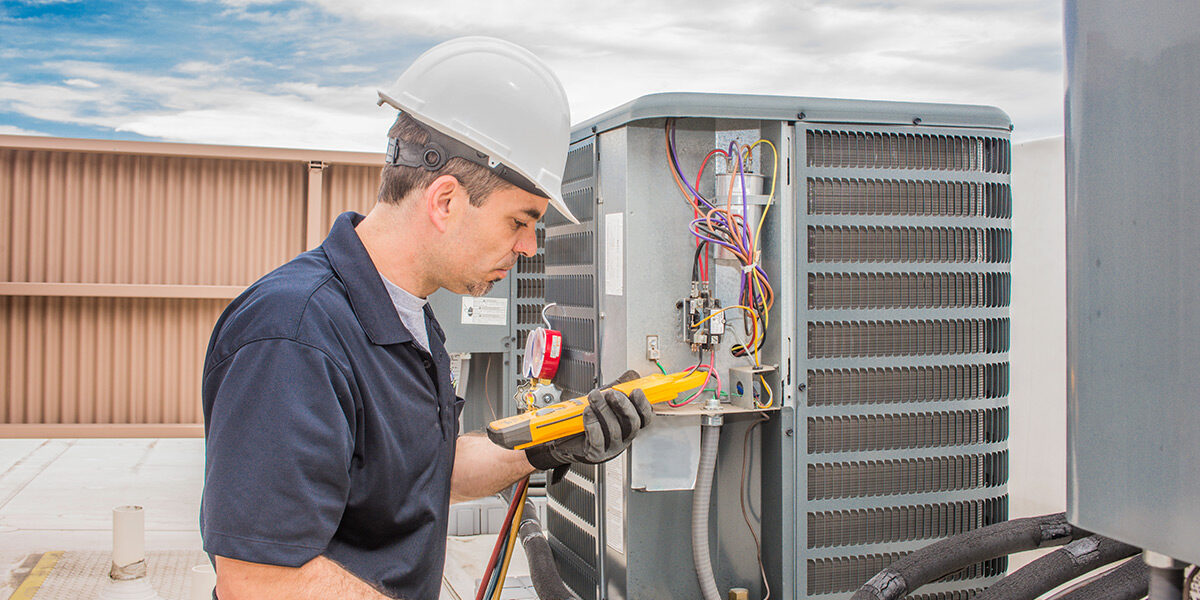
- Lessons: 53
- Duration: 10 weeks
Program Overview
Download our Mechanical Technologist – HVAC Theory Diploma brochure
The “Mechanical Technologist – HVAC Theory” Diploma is a comprehensive professional training program in heating, ventilation, air conditioning and refrigeration. The curriculum provides students with in-depth technical understanding of principles and applications for design, operation, inspection, maintenance and retrofit of HVAC systems in order to ensure acceptable indoor air quality standards while meeting energy conservation, green building and other requirements.
The program focuses on the latest technologies and the best industry practices in environmentally responsible and energy-efficient multi-unit residential, commercial, industrial and institutional HVAC-R systems operation.
Career Opportunities
Graduates of this program are well suited for positions such as project engineer/manager; mechanical or HVAC engineer or designer; applications engineer; systems designer engineer; HVAC controls technician; energy professional; plant engineer; technical sales representative; customer service representative as well as many others in industry sectors such as manufacturing, consulting engineers, installers and contractors.
Courses in this program:
HVAC – I: Fundamental Concepts and Systems
HVAC – II: Equipment, Control, and Operation Maintenance Management
Ontario Building Code
Engineering Project Management
Canadian Industrial Practices and Workplace Culture
Program Outcomes
Knowledge
Core Competency:
Gain proficiency in the area of HVAC engineering, retrofit, inspection and maintenance.
Upon completion of this course participants will:
Become familiar with practices in heating, ventilation, air conditioning and refrigeration;
Understand principles of cooling and ventilation, sources of heat, energy supplies, heat loss and gain, air movement, conventional installation methods, space heaters, introduction to electric heating, safety issues etc.;
Understand the best practices of operation, inspection, maintenance and repair of HVAC systems.
Skills
Core Competency:
Perform analysis, design, operation, inspection and maintenance of HVAC systems.
Upon completion of this course students will be able to:
Oversee installation, operation, troubleshooting and servicing of HVAC systems;
Calculate HVAC system cooling and heating loads, develop psychrometric tables and charts;
Select components and design layout of HVAC systems while giving considerations to energy conservation and green building design principles;
Select temperature controls for HVAC systems including pneumatic, electric, electronic, and computer-based software;
Investigate and resolve indoor air quality issues in the built environment, examine the typical types of health complaints and the role of ventilation systems;
Perform energy audits, estimate energy use for existing equipment and assess conservation options;
select measurement devices and calculate potential energy savings;
Oversee operation and maintenance of HVAC systems and components including chillers, cooling towers, DX units, boilers, fans, pumps, and controls;
Oversee troubleshooting of system malfunctions, set-up and implement maintenance programs that enhance performance and reliability of HVAC systems;
Exercise good work habits and communication practices in relation with HVAC industry workplace;
perform research and access industry technical information for the HVAC technology
-
1. HVAC I— Fundamental Concepts and Systems – Outline Topics
-
Lesson 1.1Basic HVAC System Calculations
-
Lesson 1.2Design Conditions
-
Lesson 1.3Cooling and Heating Load Calculations
-
Lesson 1.4Energy Estimating Methods
-
Lesson 1.5Duct and pipe Sizing
-
Lesson 1.6Life-cycle General Concept
-
Lesson 1.7Air-Conditioning System Concepts
-
Lesson 1.8System Configurations
-
Lesson 1.9Hydronic Heating and Cooling System Design
-
Lesson 1.10Heat pump, Cogeneration, and Heat Recovery Systems
-
Lesson 1.11Course Overview and Final Exam
-
-
2. HVAC II— Equipment, Control and Operation— Outline Topics
-
Lesson 2.1Air-processing Equipment
-
Lesson 2.2Refrigeration Equipment
-
Lesson 2.3Heating Equipment
-
Lesson 2.4Pluming Equipment and Systems
-
Lesson 2.5Fire Protection Equipment and Systems
-
Lesson 2.6Sustainability and Codes
-
Lesson 2.7Motor drives, starting Methods and Control
-
Lesson 2.8Controls and Building Management Systems
-
Lesson 2.9Commissioning and Handover
-
Lesson 2.10Safety in Design and Operation
-
Lesson 2.11Cost-Effective operation and Maintenance
-
-
3. HVAC II—Equipment, Control and operation—Outline Topics
-
4. Maintenance Management—Outline Topics
-
5. Ontario Building Code—Outline Topics
-
6. Engineering Project Management—Outline topics
-
Lesson 6.1Introduction, Project Life cycle and Management processes
-
Lesson 6.2Initiating a Project
-
Lesson 6.3Project Scope planning
-
Lesson 6.4Project Scheduling and Budgeting
-
Lesson 6.5Planning Project integration
-
Lesson 6.6Executing a Project
-
Lesson 6.7Monitoring and Controlling a Project
-
Lesson 6.8Closing a project
-
Lesson 6.9Life Cycle Cost
-
Lesson 6.10Tendering Process
-
Lesson 6.11Contracting process
-
Lesson 6.12Course Overview, Exam Preparation and Final Exam
-
-
7. Canadian industrial Practices and Workplace Culture
